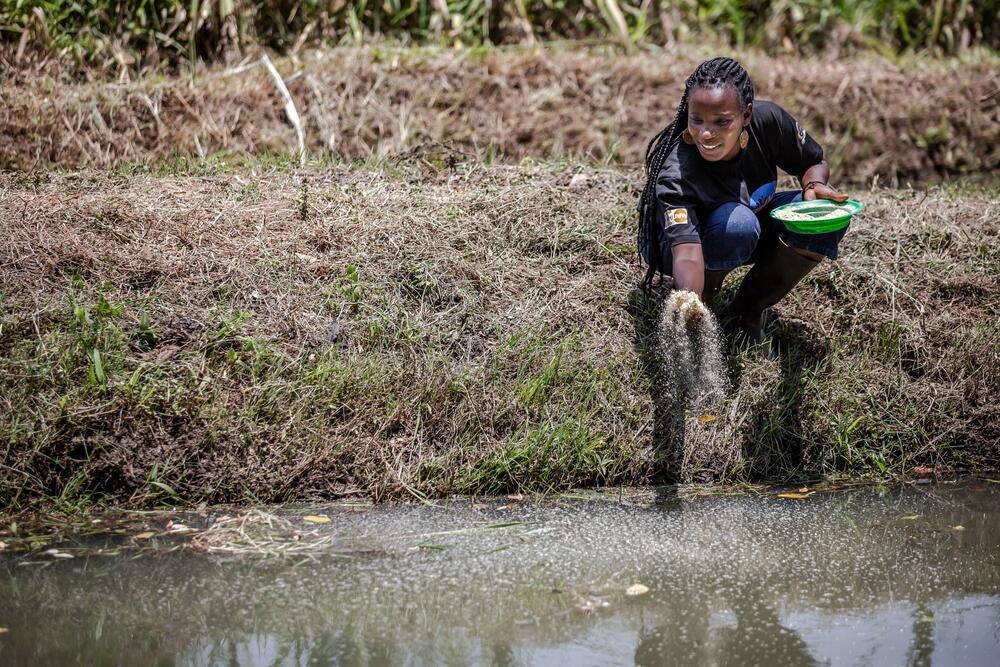Women and youth take climate action in Malawi
NKHATA BAY, Malawi
Had village elders not intervened in stopping her parents from marrying her off at 13, Catherine would have become another statistic. Malawi has one of the highest child marriage rates in the world at 42 percent. And, 9 percent of girls become child brides before age 15.
By avoiding that fate, Catherine pursued education and earned an advanced degree in community development. Now 28, she is a climate advocate and a leader in UNFPA’s Safeguard Youth Program. Catherine believes the best way to promote the health and safety of youth is through economic empowerment. The national poverty rate in Malawi is 51.5 percent. Poverty can drive families to marry off young daughters or expose girls to gender-based violence and other harmful practices.
“Most young people, especially girls, lack so many things. This makes them easy targets for exploitation,” Catherine explained. “For them to be safe, they need to be able to make their own decisions. This requires access to opportunities.”
Like UNFPA, she recognizes that livelihoods, sexual reproductive health and rights, and climate change are interrelated in Malawi. “More extreme weather due to the destruction of our environment brings hunger to communities,” she said. “With parents unable to feed their children, young people are exposed to high levels of risk including in their own behavior.”
Making the change

Catherine decided that she could lead by preserving the environment and by being an example. She hopes that by earning a living from protecting the environment, she will inspire her peers to do the same. Catherine started by planting 2,500 pine trees at the foot of a mountain on family land. Then, she added beehives that produce 20 litres of honey per week and a fish pond surrounded by wildflowers and a banana crop. Catherine is reaping the rewards of changing from subsistence farmings to diversified land use and sustainable activisties. With her earnings, she pays the salaries of five employees, school fees for her siblings, and supports her aging parents.
“At first, people were sceptical of this project, but when they saw it working to conserve the environment, more youths started coming to learn from me,” she said. “Even the chief from our area donated land for the youths to expand the forestry project.”
Building climate resiliency
Malawi is one of the least electrified countries in the world. The World Bank reports that 11.2 percent of the population of 18 million is connected to the electrical grid. (The global average is 90.1 per cent.) In rural areas, 4.1 per cent have access to electricity. This has contributed to deforestation as people driven by poverty illegally cut down trees in national parks and forest reserves to make charcoal for cooking and selling. Since 2010, Malawi has lost an average of 42,000 hectares of forest. In 2016, it committed to restoring 4.5 million hectares by 2030, more than a third of its land area.
Every Saturday, Catherine holds “climate talks” about environmental conservation and climate change as an entry point to engage youths on sexual and reproductive health issues with UNFPA. Many of the young people she has trained can now pay for their own school fees by working climate-related jobs, which are important in the face of extreme weather events like the recent Tropical Storm Ana.
“Before I started this initiative, charcoal burning was destroying our forests,” she says. “But now with many youths doing beekeeping, there is hope that our forests will survive.”